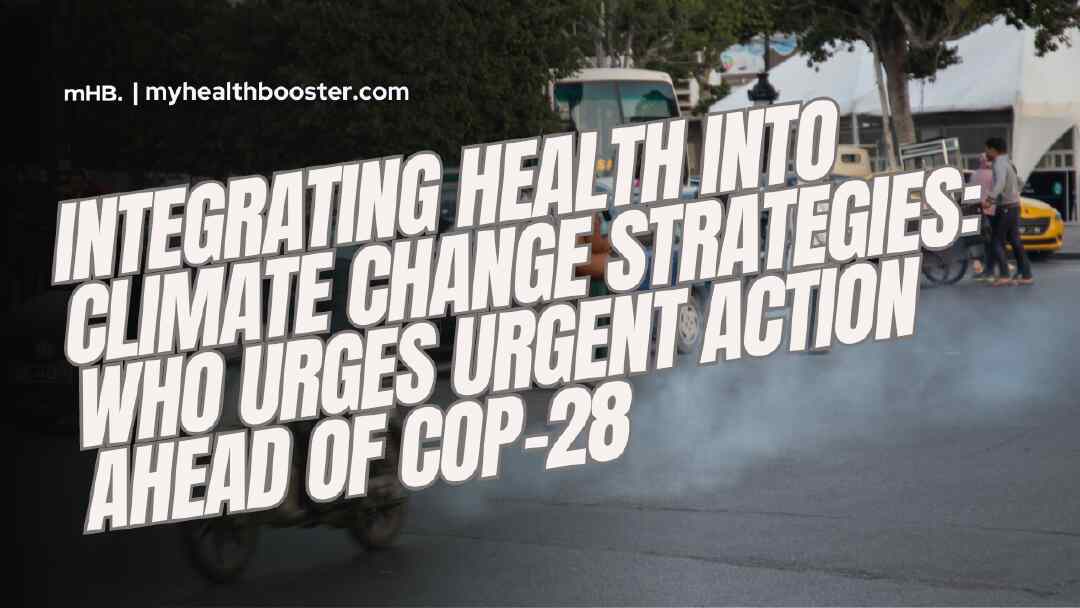In anticipation of the UN Climate Change Conference (COP-28), the World Health Organization (WHO) has released its “2023 review of health in nationally determined contributions and long-term strategies.” This report underscores the imperative of prioritizing health within national plans to combat climate change. As climate change already inflicts harm on human health, WHO emphasizes the urgent need for policies driven by health outcomes to save lives, prevent diseases, and foster fairer societies.
Climate Change’s Impact on Human Health
The effects of climate change on human health are undeniable, ranging from illnesses triggered by extreme climate events to the surge in vector-borne diseases. Cardiovascular and respiratory diseases also see an increase due to extreme heat and air pollution. Dr. Tedros Adhanom Ghebreyesus, WHO Director-General, emphasizes the interconnectedness of human and planetary health, calling for swift action to protect both.
Mainstreaming Health in National Climate Strategies
While there’s progress in integrating health into nationally determined contributions (NDCs) and long-term low emissions and development strategies (LT-LEDS), critical gaps persist. The report notes that 91% of available NDCs now include health considerations, up from 70% in 2019. However, to ensure an equitable response safeguarding current and future generations, these commitments need to be scaled up, accelerated, and adequately funded.
Urgent Action on Air Pollution
Despite advancements, there’s a glaring lack of action on air pollution. Only 16% of NDCs include specific targets, measures, or policies to reduce air pollution. Given that air pollution contributes to seven million premature deaths annually, urgent and ambitious action is vital. The report underscores that by reducing carbon emissions, countries can not only combat climate change but also experience broader health benefits, such as improvements in air quality.
Health-Specific Climate Action Underfunded
The WHO report highlights the chronic underfunding of health in national climate plans. While sustainable climate finance is crucial for health adaptation and mitigation, the financial capacity of countries often determines their ability to engage in climate action. Most nations rely on international financial support, with only a small fraction including domestic funding for health actions in their plans. WHO advocates for increased multilateral climate financing for initiatives explicitly aimed at protecting or improving human health.
Health at COP-28
As COP-28 approaches, WHO continues to support countries in building climate-resilient health systems, reducing carbon emissions from healthcare, and monitoring global progress. WHO is set to lead the first-ever dedicated day to health at COP on December 3, 2023, emphasizing the urgent need to accelerate health-focused climate action at all levels.
Conclusion
Integrating health into climate change strategies is imperative for global well-being. WHO’s call for urgent action, increased funding, and a dedicated focus on health at COP-28 underscores the critical role of health in the fight against climate change. As nations prepare to convene, the nexus between climate and health stands as a focal point for a sustainable and resilient future.
